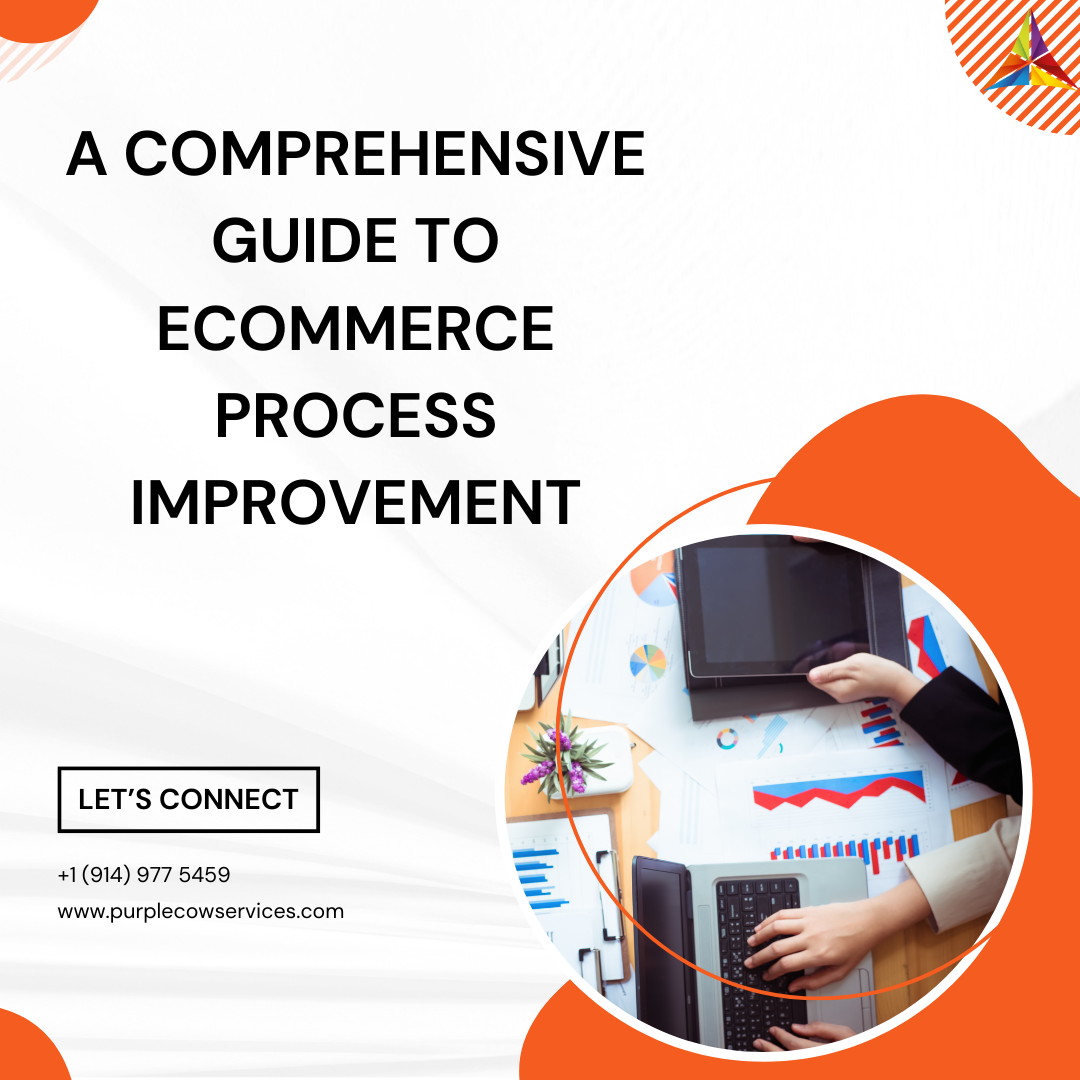In the ever-evolving world of eCommerce, staying ahead of the competition and meeting the ever-increasing demands of tech-savvy consumers is a perpetual challenge.
Share This Story, Choose Your Platform!
The key to thriving in this dynamic environment lies not only in offering exceptional products or services but also in having efficient and optimized processes that ensure a seamless and satisfying customer journey. This is where the concept of eCommerce process improvement becomes paramount.
The Essence of eCommerce Process Improvement
eCommerce process improvement can be described as a systematic and data-driven approach to identifying, analyzing, and optimizing the various operational processes involved in the eCommerce business model. These processes encompass a wide range of activities, spanning from product sourcing, order fulfillment, and customer service to inventory management, digital marketing, and website functionality.
The Significance of eCommerce Process Improvement
Enhanced Customer Experience:
At the heart of eCommerce process improvement is the goal of enhancing the customer experience. From offering a user-friendly website interface to providing hassle-free order tracking and ensuring swift and reliable deliveries, businesses that prioritize customer convenience are more likely to thrive.
Cost Reduction and Efficiency:
An optimized eCommerce process often translates into reduced operational costs. By identifying and rectifying bottlenecks and inefficiencies, eCommerce businesses can cut down on unnecessary expenses and allocate resources more effectively.
Improved Competitiveness:
In the highly competitive eCommerce landscape, having streamlined processes can give businesses a significant competitive edge. It enables companies to offer competitive pricing, faster shipping, and superior customer service, setting them apart from their rivals.
Scalability:
Efficient processes are inherently scalable. As your eCommerce business grows, you can easily expand without worrying about overwhelming your operations. This scalability is essential for achieving and sustaining long-term success.
Data-Driven Decision Making:
eCommerce process improvement relies heavily on data analysis. By collecting and analyzing data related to various aspects of the business, such as customer behavior, purchase patterns, and website traffic, businesses gain valuable insights that inform strategic decisions and keep them ahead of market trends.
Key Benefits of eCommerce Process Improvement
Enhanced Efficiency:
By identifying and eliminating redundant tasks, streamlining workflows, and addressing bottlenecks, eCommerce process improvement allows businesses to achieve more with fewer resources.
Reduced Errors:
Automated and standardized processes reduce the likelihood of human errors, ensuring order accuracy and customer satisfaction.
Faster Order Fulfillment:
Improved inventory management and order processing lead to quicker order fulfillment, reducing delivery times and enhancing the overall customer experience.
Cost Savings:
Efficiency improvements often result in cost reductions, as businesses can operate with fewer staff and lower overhead expenses.
Better Customer Service:
Efficient processes enable customer service teams to focus on providing exceptional support, resolving issues promptly, and building stronger customer relationships.
Strategies for Effective eCommerce Process Improvement
Comprehensive Process Mapping:
Start by mapping out your existing processes in detail. Visualize each step, from customer interaction to order fulfillment and post-sale support. This comprehensive understanding will help identify bottlenecks and inefficiencies.
Data Analysis and Performance Metrics:
Collect and analyze data to identify patterns and areas that require improvement. Key performance indicators (KPIs) such as order-to-ship time, cart abandonment rates, and customer feedback are invaluable sources of information.
Automation Wherever Possible:
Implement automation wherever feasible. This includes automating tasks related to inventory management, order processing, email marketing, and customer support to reduce manual workloads and human errors.
Inventory Optimization:
Maintain an optimal inventory level that meets customer demand without overstocking. Implement demand forecasting to enhance inventory management.
Website Optimization:
Ensure your eCommerce website offers a user-friendly, responsive, and fast-loading interface. A smooth browsing and checkout experience can significantly impact conversion rates and overall customer satisfaction.
Strengthen Supplier and Vendor Relationships:
Collaborate closely with suppliers and vendors to ensure timely product availability and delivery. Strong partnerships are vital for a seamless supply chain.
Employee Training and Awareness:
Provide training to your team members to help them effectively utilize new tools and follow updated processes. Ensure that everyone in the organization understands the importance of eCommerce process improvement and its direct impact on customer satisfaction and business success.
Continuous Monitoring and Adjustment:
eCommerce process improvement is an ongoing effort. Continuously monitor your processes, gather feedback from both customers and employees, and be prepared to make adjustments and refinements as needed to adapt to changing market dynamics.
Customer Feedback Integration:
Actively listen to customer feedback and reviews. These insights can highlight pain points, areas that require improvement, and opportunities for innovation.
Leverage Technology Solutions:
Integrate advanced technology solutions such as inventory management software, CRM systems, and marketing automation tools to further streamline processes and enhance operational efficiency.
Conclusion
In the fiercely competitive world of eCommerce, businesses that embrace the philosophy of process improvement gain a significant advantage. Efficiency, cost savings, and customer satisfaction are the rewards of optimizing eCommerce operations. By implementing strategies like comprehensive process mapping, data analysis, and automation, businesses can continuously evolve and adapt to meet the ever-changing demands of the digital marketplace.
eCommerce process improvement is not merely a one-time project; it’s a commitment to excellence and an investment in long-term success. Start your journey towards eCommerce process improvement today, and unlock the full potential of your online business. By doing so, you can provide an exceptional customer experience, maintain a competitive edge, and achieve sustainable growth in the dynamic world of eCommerce.
Transform Your eCommerce Business with Purple Cow. Our eCommerce process improvement expertise ensures streamlined operations, enhanced customer experiences, and cost-efficiency. We optimize your processes, harness data-driven insights, and implement cutting-edge automation, creating a winning formula for success. Join hands with Purple Cow and stay ahead in the fiercely competitive eCommerce landscape. Elevate your business to new heights today.
Share This Story, Choose Your Platform!
In This Blog:

















